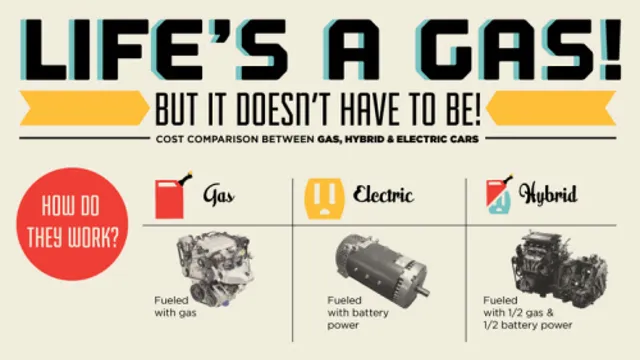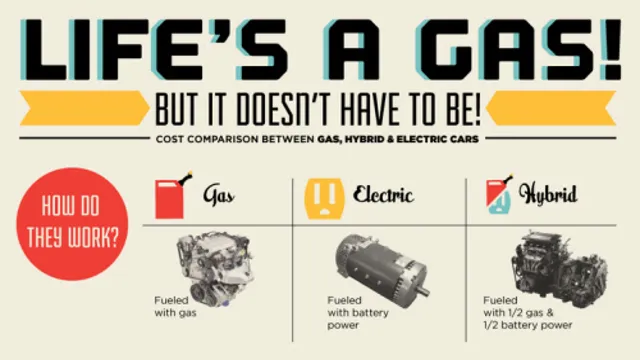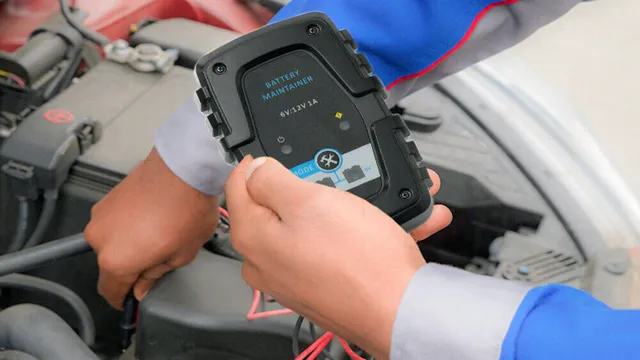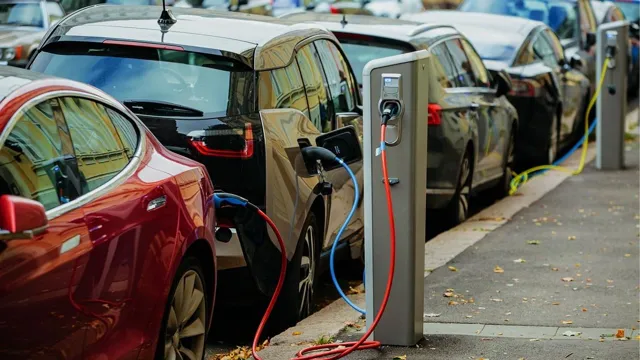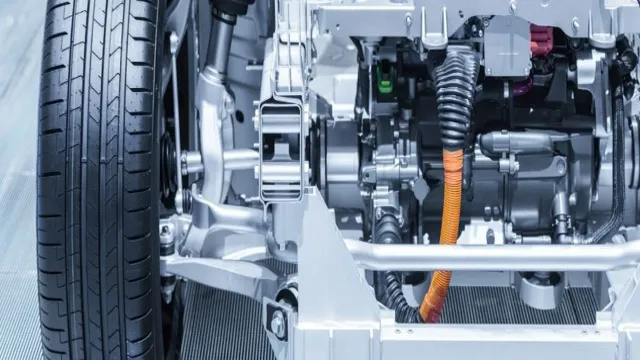The Shocking Truth Revealed: The Real Cost to Maintain Your Electric Car
Electric cars have been increasing in popularity throughout the years and thought to be the future of the motoring industry. With their eco-friendly advantages, electric cars are perceived to be an excellent alternative to traditional petrol and diesel-powered vehicles. However, some people may be hesitant about owning one due to the potential high costs.
In this blog, we will delve into the cost to maintain an electric car and compare it to the cost of maintaining a traditional vehicle. By the end of this article, you will gain a better understanding of the expenses involved in owning an electric vehicle and determine whether it is a worthy investment.
Purchase Price Vs. Maintenance
When deciding between purchasing an electric car or a gas-powered vehicle, one crucial factor to consider is the cost to maintain an electric car. Generally, electric cars have significantly lower maintenance costs than gas-powered vehicles due to their simpler construction. The lack of a traditional internal combustion engine means fewer moving parts, less wear and tear, and fewer necessary replacements.
Additionally, electric cars typically require less frequent maintenance, as they do not need oil changes, spark plug replacements, or timing belt changes. However, it’s important to note that the initial purchase price of an electric car is often higher than a gas-powered vehicle. Therefore, it is important to weigh the cost of maintenance versus the purchase price before making a decision.
Overall, while an electric car’s initial cost may be higher, its lower maintenance costs make it an attractive option in the long run, especially with the rising costs of gasoline and traditional car maintenance.
Breaking down the costs of buying and maintaining an electric car.
When it comes to buying an electric car, the initial purchase price can be a bit intimidating. However, it’s essential to take into account the long-term savings on maintenance costs. Electric cars have fewer moving parts, which typically results in lower repair and maintenance expenses.
Plus, electricity is generally less expensive than gasoline, and electric cars are more energy-efficient, meaning you’ll save money on fuel costs. It’s important to factor in all of these potential savings when considering the overall cost of an electric car. So, while the purchase price of an electric car may be more expensive initially, the potential long-term savings on maintenance and fuel costs make it a wise investment for those looking for cost-effective and environmentally friendly transportation options.
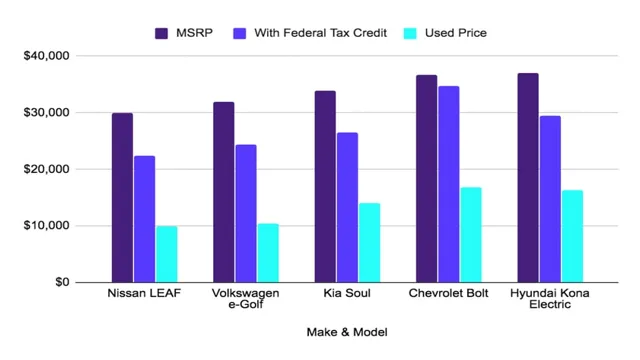
Battery Life Expectancy
As electric cars become more prevalent in the modern world, many prospective buyers have concerns about the cost to maintain electric cars. One of the most significant factors when it comes to the cost to maintain an electric car is the battery life expectancy. Although the batteries in electric cars are designed to last a considerable amount of time, they do eventually need replacement, which can be expensive.
However, factors such as the manufacturer and size of the battery, as well as the climate where the car is located, can all affect the battery’s lifespan and overall cost. Therefore, it is essential to research and compare different models and battery types before purchasing an electric car to ensure the most affordable long-term maintenance costs.
How long do electric car batteries typically last and what is the replacement cost?
Electric car batteries typically last between 8 to 10 years on average, depending on the make and model of the vehicle. This lifespan can also be affected by factors such as driving habits, temperature, and maintenance. However, technological advancements in electric vehicle batteries are constantly being made, which has led to the development of batteries that can last up to 20 years with proper maintenance.
When it comes to replacing an electric car battery, the cost can vary widely depending on the make and model of the vehicle. On average, the cost can range from $5,500 up to $15,000 or more. However, it’s important to note that some manufacturers offer warranties on their batteries that can cover replacement costs for a certain number of years or miles driven.
Ultimately, the lifespan and replacement cost of electric car batteries are important considerations for potential buyers, but with proper maintenance and advancements in technology, replacing a battery may not be necessary for up to a decade or more.
Maintenance Costs
One of the many advantages of owning an electric car is the significantly lower cost to maintain it. Unlike traditional gasoline-powered cars, electric cars require less maintenance due to their simpler mechanics. Electric cars have fewer moving parts which mean that there are fewer components that can wear out or break.
Additionally, the lack of an internal combustion engine means that there is no need for oil changes, spark plug replacements or timing belt replacements. With fewer parts to regularly replace, electric cars save you a lot of money on maintenance costs. In fact, studies show that electric car owners spend around 50% less on maintenance costs compared to conventional car owners.
This is because maintenance on electric cars usually involves brake pad replacements and tire rotations. Battery replacements may be necessary but only after several years of use, and the cost of battery replacements is becoming more affordable as technology continues to improve. Overall, the cost to maintain an electric car is significantly lower than maintaining a traditional gasoline-powered car, making it an excellent choice for those who prioritize a more affordable and sustainable lifestyle.
What are the typical maintenance costs for an electric car, including tires, brakes, and fluid changes?
When it comes to owning an electric car, many people wonder about the maintenance costs. One of the biggest advantages of electric cars is that they require less maintenance than traditional gas-powered vehicles. For example, electric cars do not have many of the components that require regular maintenance, such as oil changes, spark plugs, and timing belts.
However, there are still some maintenance costs to consider. Tires are a common expense for any vehicle, and electric cars are no exception. Brakes also wear down over time, but electric cars tend to use regenerative braking, which means the brakes last longer than those in traditional cars.
Fluid changes are also necessary, although less frequently than in gas-powered vehicles. Overall, the maintenance costs for electric cars are generally lower than for traditional cars, which can save owners money in the long run.
How do these costs compare to a gas-powered car?
When it comes to maintenance costs, electric cars have a significant advantage over gas-powered cars. Electric cars have fewer moving parts and components than gas-powered cars, which means they require less maintenance. For example, electric cars don’t have spark plugs, belts, or oil filters that need to be replaced routinely.
This translates to lower costs for maintenance services, such as oil changes, tune-ups, and brakes. Additionally, electric cars have regenerative braking systems that recharge the battery when slowing down or stopping, reducing wear and tear on the brake pads and reducing the need for costly brake repairs. Overall, compared to gas-powered cars, electric cars require less maintenance, resulting in lower costs for owners.
Charging Costs
When it comes to the cost to maintain an electric car, one of the main factors to consider is the cost of charging the vehicle. Generally, the cost of charging an electric car is much lower than filling up a gas tank, and in some cases, charging at home can be almost free. However, the cost of charging can vary depending on several factors, including the time of day, the type of charging station used, and the cost of electricity in the local area.
With the rising popularity of electric cars, more and more charging stations are becoming available, making it easier to find a place to charge while on the go. Public charging stations can vary in cost, with some being free while others charge a fee. Additionally, some electric car owners may choose to invest in a home charging station to save money in the long run.
The initial cost of installing a home charging station can be expensive, but it can save money in the long run by avoiding public charging fees and taking advantage of off-peak electricity pricing. As with any car, there are other maintenance costs to consider when owning an electric car, such as tires, brakes, and routine maintenance like oil changes. However, it’s worth noting that electric cars generally require less maintenance than gas-powered cars, as they have fewer moving parts and don’t require as much lubrication.
In conclusion, while the cost to maintain an electric car can vary depending on several factors, including charging costs, owning an electric car can ultimately save money in the long run. By taking advantage of low-cost charging options and investing in a home charging station, electric car owners can reduce their overall cost of ownership. Additionally, with fewer maintenance costs and benefits such as tax incentives and environmental benefits, electric cars are a smart and sustainable choice for those looking to reduce their carbon footprint while also saving money.
What are the costs associated with charging an electric car, including at-home charging and using public charging stations?
Charging your electric car can come with different costs depending on whether you charge at home or use public charging stations. At-home charging is usually the most affordable option because you can take advantage of lower residential electricity rates, and setting up a Level 2 charging station in your garage or driveway can cost several hundred dollars. However, if you rely exclusively on public charging stations, the cost can vary from free to up to $0.
50 per kWh, which can add up quickly. It’s important to note that some public charging stations require a subscription or a one-time fee to use, so make sure you factor that into your budget. Additionally, the type of charging connector your car uses can play a role in the cost.
For example, some public charging stations have fast-charging capabilities, which can cost more per minute but allow you to charge your battery more quickly. Overall, charging your electric car can be cheaper and more convenient than refueling a gas-powered vehicle, but it’s important to do your research and plan ahead to avoid unexpected costs.
Warranty and Insurance
When it comes to electric cars, the cost to maintain them can be a bit different than traditional gas-powered vehicles. One of the factors that can affect maintenance costs is the warranty and insurance. Electric car warranties tend to be longer than gas car warranties, often covering the electric battery for up to 8 years or 100,000 miles.
Some manufacturers even offer warranties on other electric car components like motors and inverters. This can help reduce maintenance costs for the owner as they won’t have to worry about paying for expensive battery replacements or costly repairs on these components. Additionally, insurance companies also tend to offer lower rates for electric cars as they are considered to be safer on the road and typically have fewer accidents than traditional gas cars.
Overall, the warranty and insurance can be an advantage for electric car owners in terms of reducing maintenance costs and saving money in the long run.
What types of warranties and insurance options are available for electric cars, and how does this affect maintenance costs?
When it comes to buying an electric car, it’s important to consider the different warranty and insurance options available. Most electric car manufacturers offer a standard warranty for both the vehicle and the battery, typically ranging from 3 to 8 years. Additionally, some companies offer extended warranties for an additional cost, allowing owners to have peace of mind for a longer period of time.
In terms of insurance, electric cars tend to have higher premiums due to the cost of repairing or replacing the battery pack. However, some insurance companies offer specialized policies for electric cars that can help reduce costs. These policies may include roadside assistance for charging or towing to the nearest charging station in the event of a battery failure.
It’s important to carefully consider the warranty and insurance options when purchasing an electric car, as they can impact maintenance costs over time. While the initial cost may be higher, having comprehensive coverage can save money in the long run and provide added benefits for electric car owners.
Conclusion
In conclusion, maintaining an electric car is like having a high-tech pet – it requires attention, care, and a little bit of investment. While the cost to maintain an electric car may not be as simple as filling up a gas tank, it’s definitely worth it in the long run for a cleaner, quieter, and more efficient driving experience. And let’s face it, who wouldn’t want to show off their eco-friendly car to friends and family? So go ahead, embrace the future and invest in the maintenance of your electric vehicle – it’s a small price to pay for a smarter and more sustainable way of getting around.
“
FAQs
What is the average cost to maintain an electric car?
The average cost to maintain an electric car ranges from $400 to $700 per year, which is significantly lower than the $1,200 to $1,800 per year for gas cars.
What are the main maintenance costs for an electric car?
The main maintenance costs for electric cars include tire and brake pad replacement, battery replacement, and regular inspections of the electric motor and charging system.
How often does an electric car need to be serviced?
Electric cars require less frequent servicing compared to gas cars, usually every 10,000 to 15,000 miles or once a year, whichever comes first. The maintenance schedule may vary depending on the make and model of the electric car.
Do electric cars require oil changes?
Electric cars do not require oil changes, as they do not have internal combustion engines. However, they still need some maintenance, such as brake fluid replacement and cabin air filter replacement.
